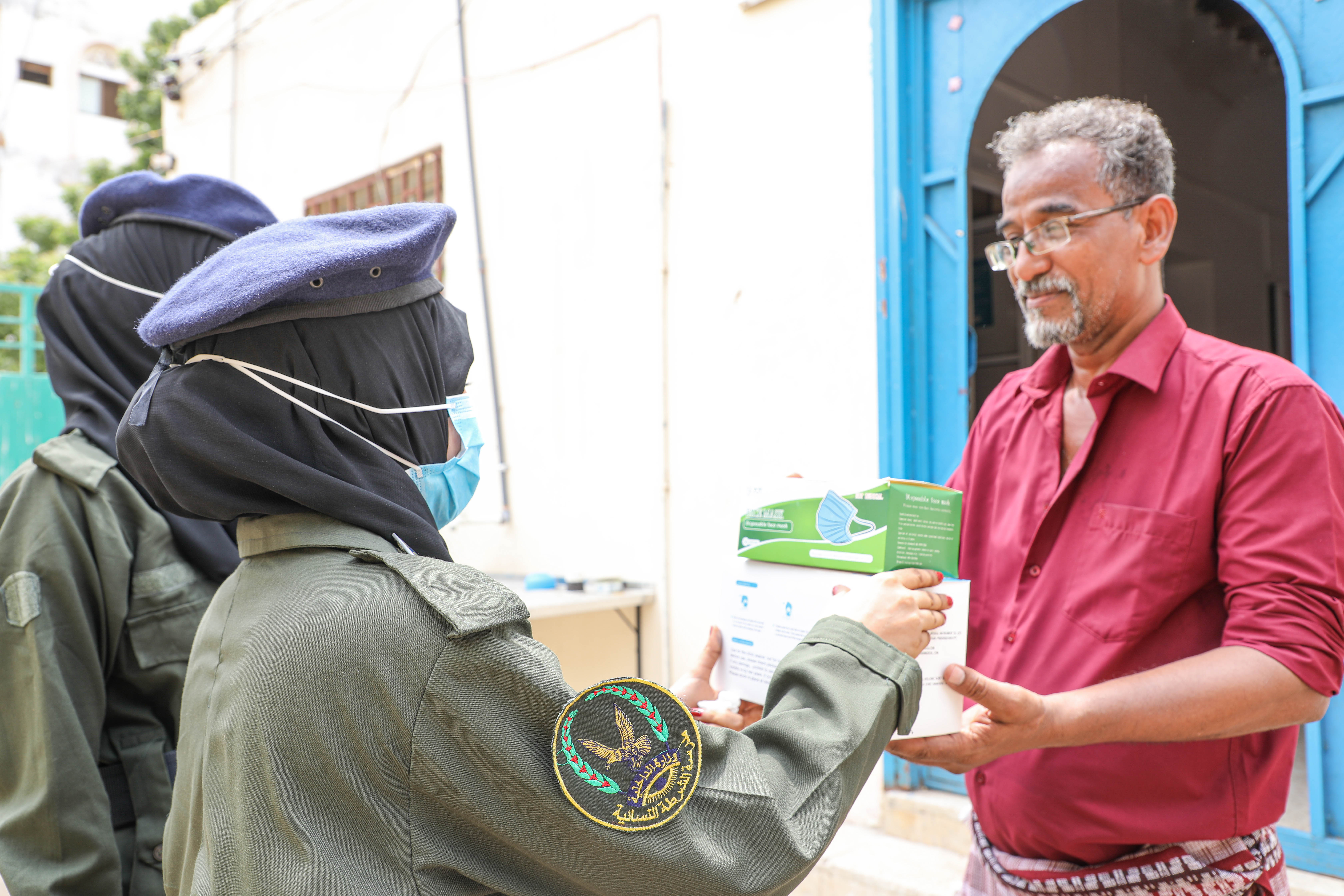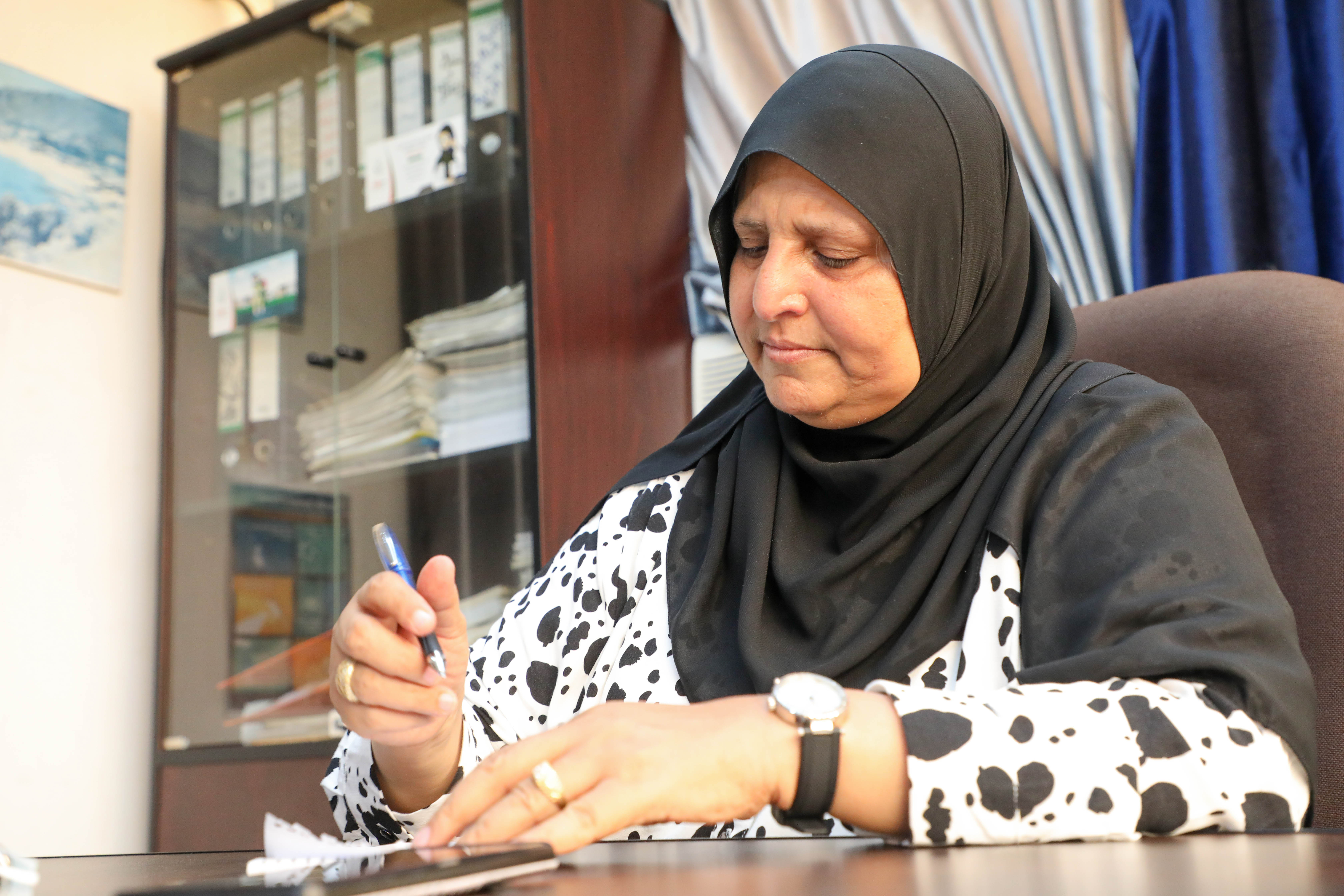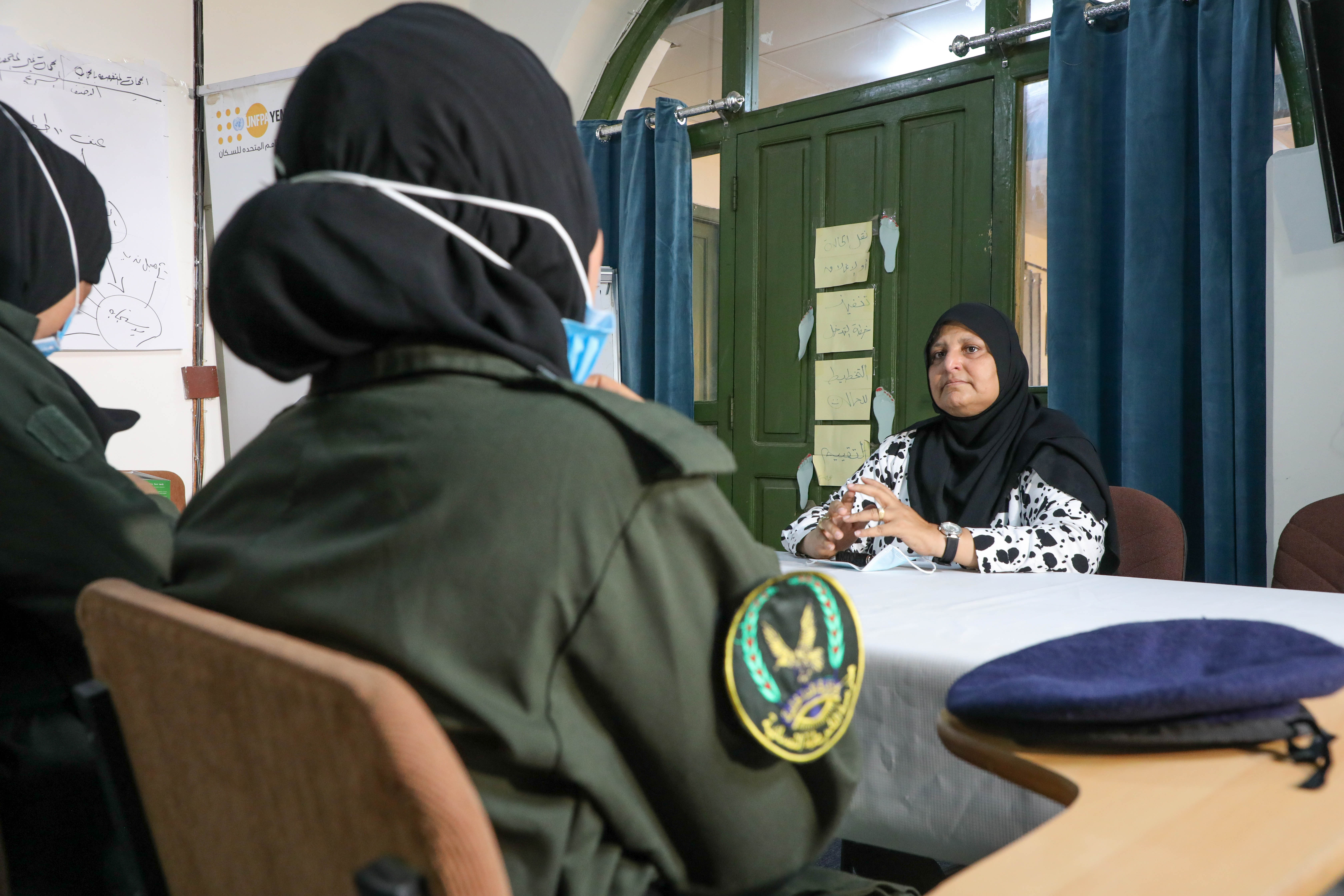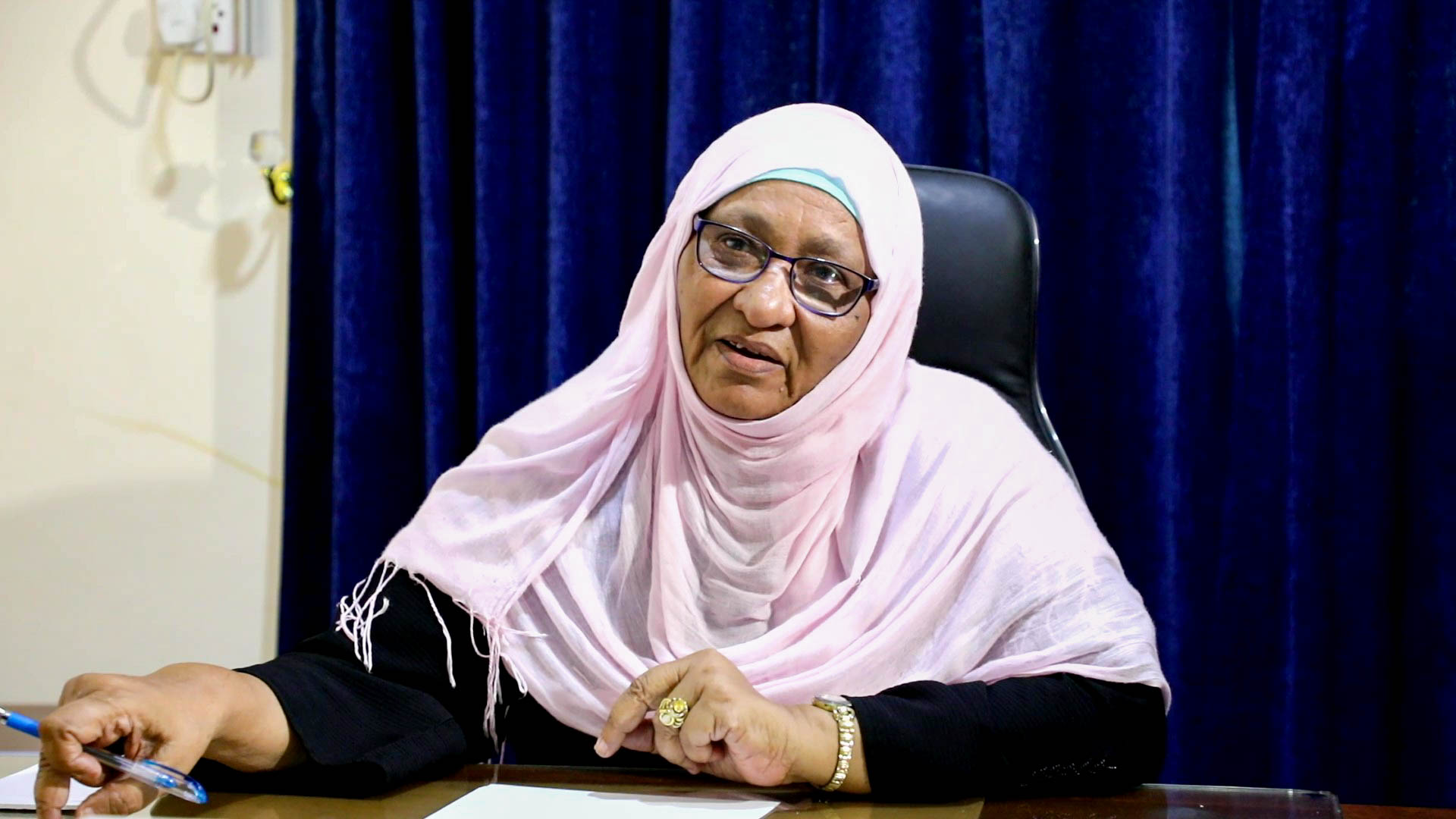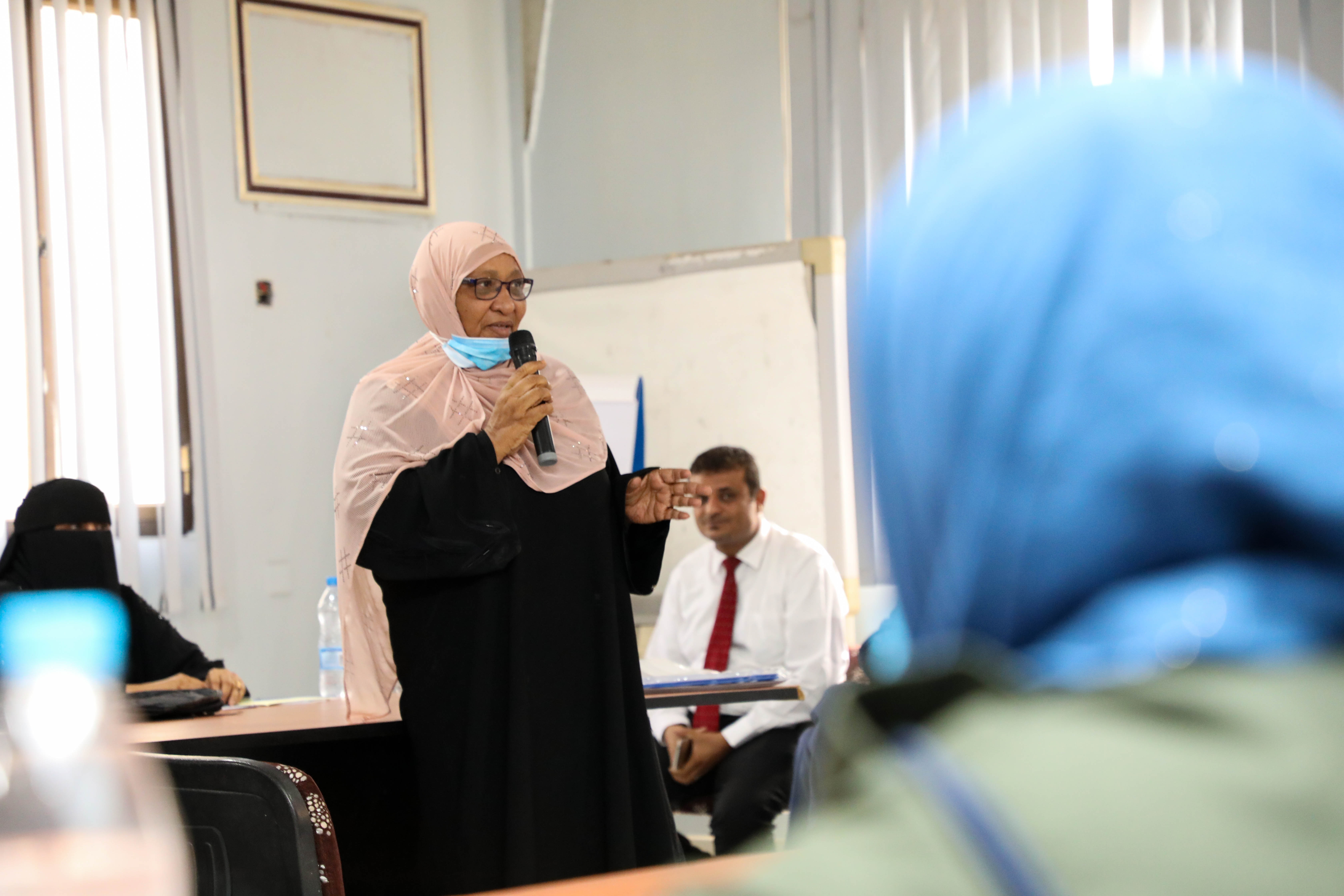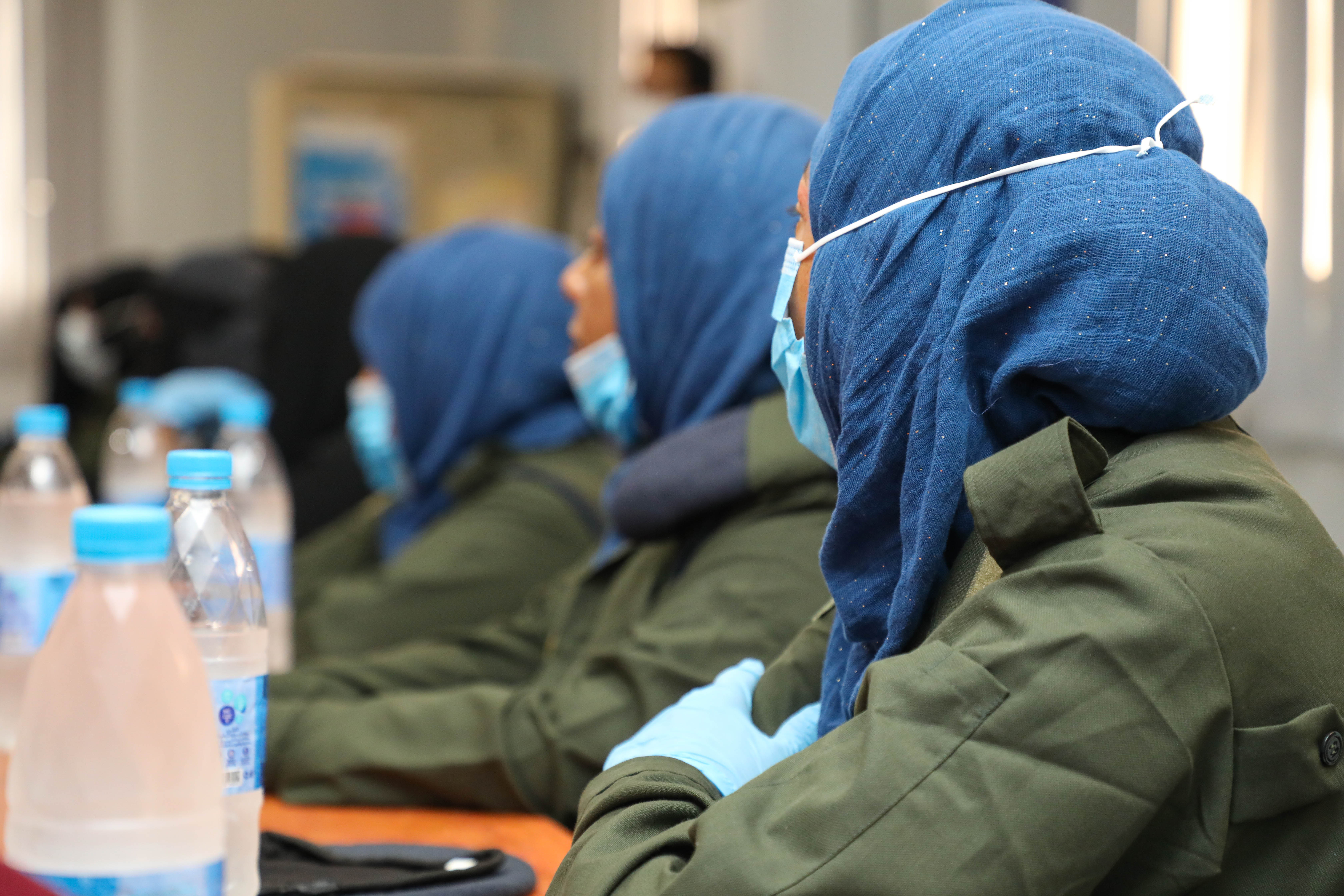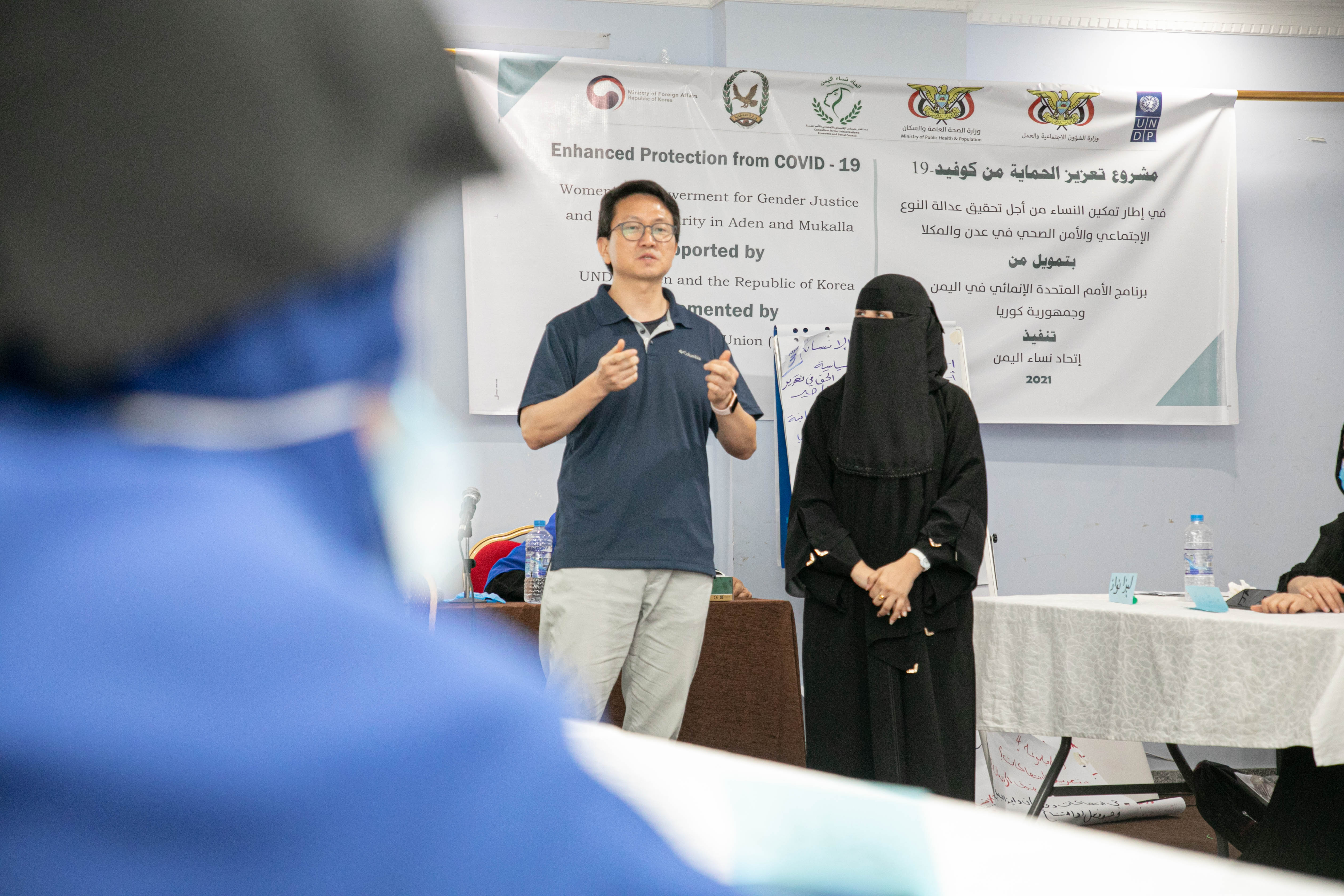A policewoman receiving hygiene materials to help protect against Covid-19 after participated in training on Covid-19 Response | Photo Credit: UNDP Yemen/2021
“We are the granddaughters of Bilqis; we can make Yemen happy again!” says Valentina, the Administrative Director and Acting Chairperson of the Yemen Women Union (YWU) in Aden. In a thrilling voice and eyes shining with excitement, she expresses her wish that Yemeni women may once again become the leaders of Yemen like Queen Bilqis – also known as the Queen of Sheba – ruler of the Kingdom of Shaba in southwestern Arabia, now Yemen.
Established in 1968 in Aden, YWU is an independent non-governmental organization with membership open to women from different age groups and political affiliations. The Union has 23 branches across Yemen and Valentina is a veteran member who began her leadership roles in 2003. “I am in this position as a result of democratic elections and the support of my family and love of the people,” she says.
Valentina, the Administrative Director and Acting Chairperson of the Yemen Women Union (YWU) in Aden | Photo Credit: UNDP Yemen/2021
Addressing gaps in COVID-19 response
With funding from the Republic of Korea, the United Nations Development Programme (UNDP) and partners are working together for stronger gender justice and health security for over 20,000 women and children in Aden and Mukalla, amid the COVID-19 crisis and ongoing conflict. “This partnership will implement activities that benefit the community. This includes COVID-19 response, access to justice, access to criminal justice for prisoners and others,” indicates Valentina. It will also serve to create COVID-19 Standard Operating Procedures (SOPs) on gender justice and health security in public health crises.
A component of the partnership will be to focus upon building the skills of women leaders from the Ministry of Interior, the Ministry of Social Affairs and Labour and the Ministry of Public Health and Population (MOPHP). Empowering women leaders will allow them to voice their concerns at MOPHP’s Risk Communication and Community Engagement forums in Aden and Mukalla – key platforms for COVID-19 response coordination activities across Yemen.
COVID-19 is a serious concern in Yemen where many lack accurate knowledge about the virus. “There is a gap in COVID-19 response that must be bridged. Everyone – the local authorities, the police, religious figures and all the social strata – must spread the knowledge about COVID-19,” says Valentina.
To strengthen the COVID-19 response, policewomen will be trained and hygiene materials will be distributed to police stations, the Immigration Authority, checkpoints and all the security locations that are in direct contact with the community.
Valentina in an internal discussion with trained policwomen | Photo Credit: UNDP Yemen/2021
Improving community safety and security
Brigadier-General Aliya, General Director of the Family Protection Department, Ministry of Interior of Yemen | Photo Credit: UNDP Yemen/2021
From behind her desk, Brigadier-General Aliya – Director-General of the Family Protection Department, Ministry of Interior of Yemen – indicates that “Wars are disasters. They have psychological, social and economic impacts those are too difficult for every woman. Where the war has not destroyed the homes and displaced people, it has been affected by deteriorating economic conditions.”
She goes on to explain that “At a time when many can barely afford to keep food on the table for their families, COVID-19 has added insult to injury. People cannot provide the necessities to protect themselves from the virus and the treatment needed if they are infected.”
Brigadier-General Aliya talking to participants during training on Covid-19 Response | Photo Credit: UNDP Yemen/2021
Aliya, a veteran senior police official, explained that the police women and the YWU have been working together to protect gender-based violence survivors and children from crimes, and noted that this partnership with UNDP has extended this to the protection from COVID-19. She expresses her wishes to continue such projects “so that everyone can benefit.”
Under Aliya’s leadership, hundreds of policewomen and juvenile police contribute to public order and peace. This project will further strengthen this by providing training to 200 policewomen (21 Abyan, 98 Aden, 21 Lahj, 40 Mukalla, and 20 Seiyun) in five governorates. Training topics include, human rights, gender-based violence, case referral, and community policing, particularly the role of women police to promote gender justice and health security in their communities.
Policewomen participants during the training on Covid-19 Response practices and measures | Photo Credit: UNDP Yemen/2021
The project will also focus upon strengthening their relationships with 20 women social and health workers in the communities, and, in partnership with experts from the Korean National Police University, will facilitate knowledge-sharing on digital gender justice (i.e., prevention and response to GBV cybercrimes).
UNDP's Won, Rule of Law Project Manager, talking to participants during the Covid-19 Response training | Photo Credit: UNDP Yemen/2021
“Our goals are the same. We want to protect women and minors, protect the community, peace, women's participation in power and decision-making bodies,” explains Aliya. “I hope that someday women across Yemen will be participating effectively at work, home, raising children and be involved in all the political and community spheres of life. I wish one day we can see a woman become the president of Yemen.”
***
UNDP's Governance and the Rule of Law works to balance supply and demand - empowering individuals and communities to understand and claim their rights while helping institutions to realize those rights in an equitable, just, accountable, transparent, inclusive, and participatory manner. The projects include: (a) facilitating the safe movement of families away from frontlines; (b) improving community access to security and justice; (c) strengthening the ability of local providers to deliver public services; and, (d) helping restore economic stability and social networks.

 Locations
Locations